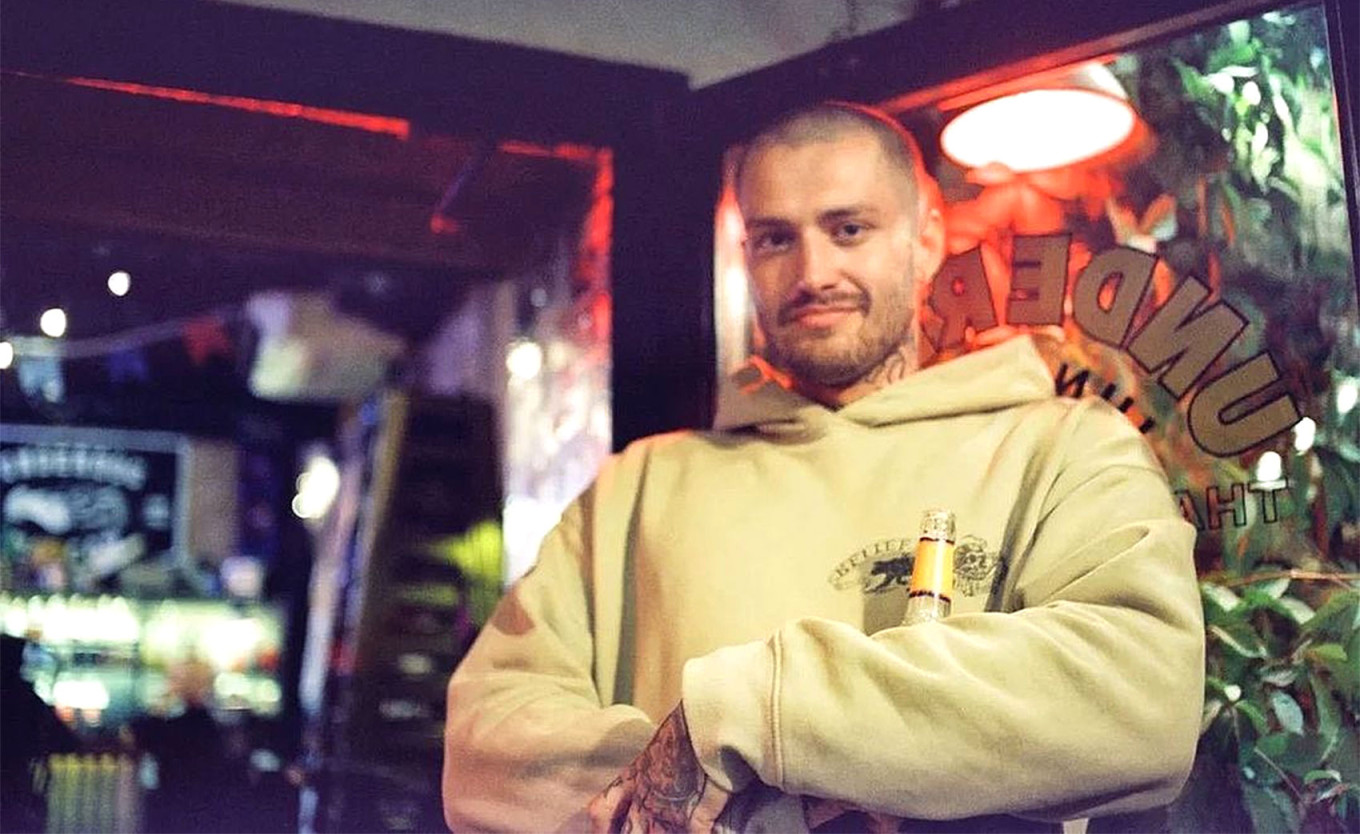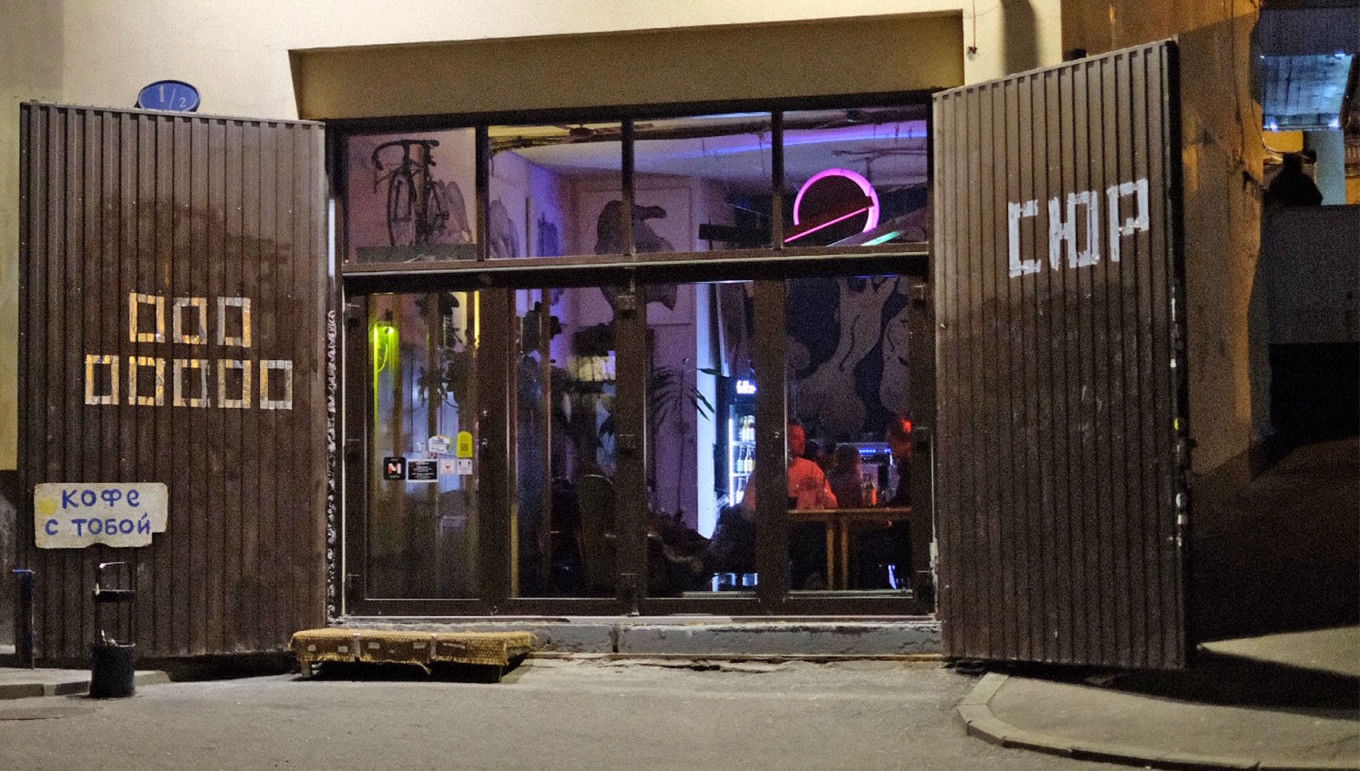MOSCOW — Underdog, a tiny bar in the central Kitai-Gorod neighborhood, was crowded and noisy on Tuesday night despite a violent police raid days earlier in which visitors had been threatened with electric shock devices and forced to sing pro-Kremlin songs.
“I think we need to show our support,” one visitor at this punk, hipster bar told The Moscow Times over a glass of cider as funk-rock music played over the sound system.
“Lightning never strikes the same place twice,” another Muscovite said via social media messenger when asked if she was worried about another appearance by the police.
Since the start of the war in Ukraine, the Russian authorities have cracked down on anti-war and opposition politicians, journalists and activists — but the well-publicized raids on Underdog sparked fears that independent and alternative venues may be next in the firing line.
Masked security officers raided Underdog, as well as its sister establishment La Virgen Taqueria, on Friday evening.
Up to 50 people — including staff and patrons of the bars — were detained and questioned by the Federal Security Service (FSB) operatives.
A video posted by the state Moskva news agency showed Underdog visitors being forced to sing patriotic songs. Other reports said they were threatened with electric shock devices.
Lawyer Konstantin Yerokhin, who represents Underdog, told The Moscow Times that police officers in balaclavas forced people at the two bars to unlock their phones and display any tattoos, and seized two payment terminals from the bars.
The raids are believed to be linked to a since-deleted social media post by La Virgen Taqueria last summer announcing a vinyl record sale to raise money for the Kyiv Angels, a Ukrainian charity that helps both civilians and military personnel.
Over the weekend, the entrance to the bar was also spray-painted with the letters “ZOV” — a pro-war symbol inspired by identification markings painted on Russian vehicles in Ukraine.
Following the raids, Pavel Kosov, one of La Virgen Taqueria’s owners, said on Instagram that he was stepping away from the business in order to protect staff.
Kosov declined an interview request from The Moscow Times.

“We do not want our places to be associated with any illegal actions directed against our country or with fascist views,” Underdog said in a social media post Tuesday, in an apparent reference to Russian officials who claim that Ukraine is run by Nazis.
It added that the bar “had never collected money and sent it to the Ukrainian Armed Forces.”
The staff at Sur, a nearby popular bar and cafe, showed their support for Underdog in the wake of the raids.
“The fact that they were attacked after so many months is a serious warning that anyone can be targeted,” Sur owner Nikita Fomkin told The Moscow Times on Tuesday, adding that the number of visitors to Sur had not dropped since the raid.
It was not immediately clear why the police decided to target Underdog and La Virgen Taqueria so long after the social media post that triggered the initial anger.
The bar owners have repeatedly denied helping Ukraine.

The owners of La Virgen Taqueria said in a statement in July that the post about the alleged fundraiser event was posted by hackers. Days later, Underdog announced a fundraising event to support “millions of refugees” in Russia and the Russian Red Cross.
Despite their denials, Underdog and La Virgen Taqueria have been the target of abuse from Russian nationalists who demanded “traitors” be punished and even jailed.
“I also received numerous threats, including threats against my mother,” lawyer Yerokhin told The Moscow Times in a phone interview.
Russian law enforcement appears to be cracking down on those suspected of supporting Ukrainian causes, or of transferring money to the Ukrainian Armed Forces.
Earlier this month, a Russian woman was arrested on suspicion of treason for allegedly sending money to the Ukrainian military.
If found guilty, she faces up to 20 years in jail.
Raids on bars like Underdog and La Virgen Taqueria, as well as other cultural spaces and venues hosting talks and exhibitions, appear to be on the rise.
About 20 bars in St. Petersburg were shut down by the authorities Wednesday for allegedly involving minors in “antisocial acts,” local news outlet Fontanka reported.
Moscow police raided the Open Space venue Sunday while it was hosting a launch event for a comic book written by Alexandra Skochilenko, a St. Petersburg-based artist on trial for swapping supermarket price tags with anti-war stickers.
According to Fomkin, Russia’s independent and alternative venues expect such state pressure to increase in the coming months.
“We are on a downward slope,” said Fomkin.
“I think that restaurant owners will soon be told what to do, like what’s happening with filmmakers and journalists.”